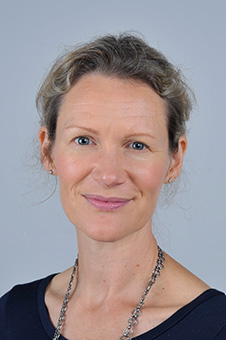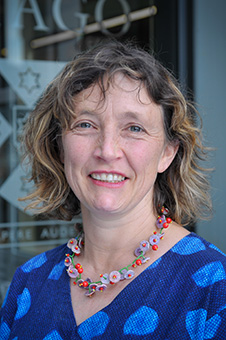New Zealand's COVID-19 vaccine roll-out is failing to reach those with mental health and addiction issues, despite their inclusion in a priority group for vaccination, researchers have found.

Associate Professor Susanna Every-Palmer.
In an article in the New Zealand Medical Journal, Associate Professor Susanna Every-Palmer, the Head of the Department of Psychological Medicine at the University of Otago, Wellington, says figures from the Ministry of Health show that by the end of September last year only 30 per cent of people using mental health and addiction services had received two doses of the vaccine, compared to 48 per cent of the eligible population and 85 per cent of the over 65s.
Associate Professor Every-Palmer says having severe mental illness or substance use disorder is one of the highest risk factors for requiring hospitalisation if infected with COVID-19 and of dying from COVID-19.
"Unfortunately the vaccination framework did not include mental health and addiction issues as underlying health conditions until the end of May. This led to many people with mental health and addiction issues and their health practitioners being unaware they were in priority group 3 for vaccination, alongside the over 65s and others with underlying health conditions."
Associate Professor Every-Palmer says these inequities have persisted since their original data analysis was conducted.
"While increased support has led to more people with mental health and addiction issues getting vaccinated, recent figures show these vaccination rates continue to lag well behind the general population."
By 14 February this year, only 80 per cent of people receiving mental health treatment and 78 per cent of people receiving alcohol and drug treatment had received two vaccinations, compared to 95 per cent of the eligible population. No data on boosters is available by mental health or addiction status, but the researchers say booster rates will almost certainly be lagging in these groups.

Associate Professor Cameron Lacey (Te Atiawa).
Associate Professor Cameron Lacey (Te Atiawa) from the University of Otago, Christchurch, says the vaccination rates for Māori with mental health and addiction issues are particularly concerning.
By the end of September, only 47 per cent of Māori mental health or addiction service users had received a first dose of the vaccine, compared with 79 per cent of the eligible general population. In February, vaccination rates were 72 per cent for Māori receiving addiction treatment and 74 per cent for those receiving mental health treatment – markedly below the general population.
"These vaccination figures are worryingly low, especially as tāngata whai ora Māori are one of the populations most at risk of premature mortality."
Dr Ruth Cunningham from the Department of Public Health at the University of Otago, Wellington, says people with mental health and addiction issues can experience discrimination when seeking medical care, and this is one of the reasons for poor physical health outcomes in this group.
"Health providers need to proactively contact patients who experience mental health and addiction issues to talk about COVID-19 vaccinations and the importance of boosters.
"Taking time for a discussion about people's thoughts and feelings about vaccination and the reasons for vaccination is likely to be much more effective than the simple offer of a vaccine."

Dr Ruth Cunningham.
She says practical assistance with transport and providing greater vaccination outreach in locations such as transitional housing would help with boosting vaccination rates.
"Anecdotal evidence suggests those with mental health and addiction issues have had the same intention to be vaccinated as the general population. The onus is on all health services to be proactive and ensure people have their questions answered and can be supported to access all the vaccinations they are eligible for.
"This should not just stop at the COVID-19 vaccination – people with mental health and addiction issues should also be eligible for funded flu vaccinations, along with people with other compromising health conditions, for example."
Dr Cunningham has begun a Health Research Council-funded project, Tupuānuku, looking at improving the physical health of those with mental health and addiction issues. This includes an online survey, which is seeking people's experiences of receiving physical health care, in order to understand how discrimination in health care can be countered.
Publication:
Susanna Every-Palmer, Ashley Koning, Linda Smith, Ruth Cunningham, Cameron Lacey, Deborah Peterson, Angela Jury, Kate M Scott, Tony Dowell, Alison Masters, Helen Lockett
The New Zealand Medical Journal






